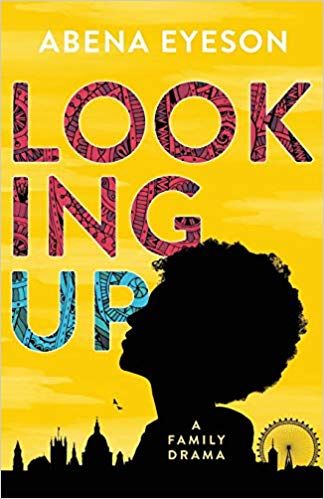Looking Up, A Family Drama
 Looking Up
Looking Up
January 18, 2019
184

With her father Solomon not in her life since she was four and her mother Maggie working away in London, thirteen-year-old Esi has found contentment and stability living with Nana Nancy, cousin Ama and Auntie Cissy in Accra. Now all of that is about to change. Maggie has sent for her and Esi is leaving Ghana reluctantly to join her. Her move to London, not only forces Esi to deal with challenges she's never faced before, but it brings up many questions about Maggie and Solomon, the answers to which in the end change her life. Looking Up is a fresh, contemporary story that will be enjoyed by older children and adults alike.
Esi is a teenager living in Ghana. She has been living with her grandmother, auntie and cousin ever since her mother, Maggie, moved to London six years ago. It was long known that one day Esi would join her mother in London but when the plans are finally made, Esi becomes nervous and depressed. The story follows Esi as she moves to a new city, in a new country, with a mother she hardly knows.
Looking Up is a breezy read that gives great insight into teenage life, immigrant viewpoints, and multicultural perspectives. Through her migration and adjustment story, we learn more about her family roots and cultural traditions in Ghana. Esi’s grandmothers and school friends are critical characters. Some are the source of her challenges while others guide her through tough times. The story covers the topics of bullying, parenting styles, divorce, the role of extended family, and ethnocentrism/racism. For example, Esi is put in lower level classes because of assumptions made of her previous schooling in “Africa.” She is mistreated by friends because of the way she talks and who she hangs out with.
My favorite part of the story is when Esi befriends a kid with Bangladeshi roots and she makes connections between her Ghanaian culture and his. I also enjoyed the many female characters who are not portrayed as heroines or villains, but complex, nuanced women.
This book would foster great discussion among teenagers. Possible questions are:
- How do you feel about Esi’s father Solomon?
- Have you ever experienced a Lisa-type person in your school? How have you managed the relationship?
- Esi ultimately ends up spending more time with her friends that are also immigrants or second generation immigrants. Why? What friend groups do you have in your school?
- The grandmothers are very revered by adults and children alike in this story. What does this tell you about Ghanaian culture?
- Auntie Comfort and Kojo are more than neighbors. What role do they play in this story?
Highly Recommended
Reviewed by Anastasia Shown, MSW, University of Pennsylvania School of Social Policy and Practice
Published in Africa Access Review (October 1, 2019)
Copyright 2019 Africa Access
